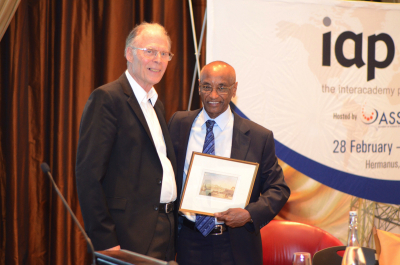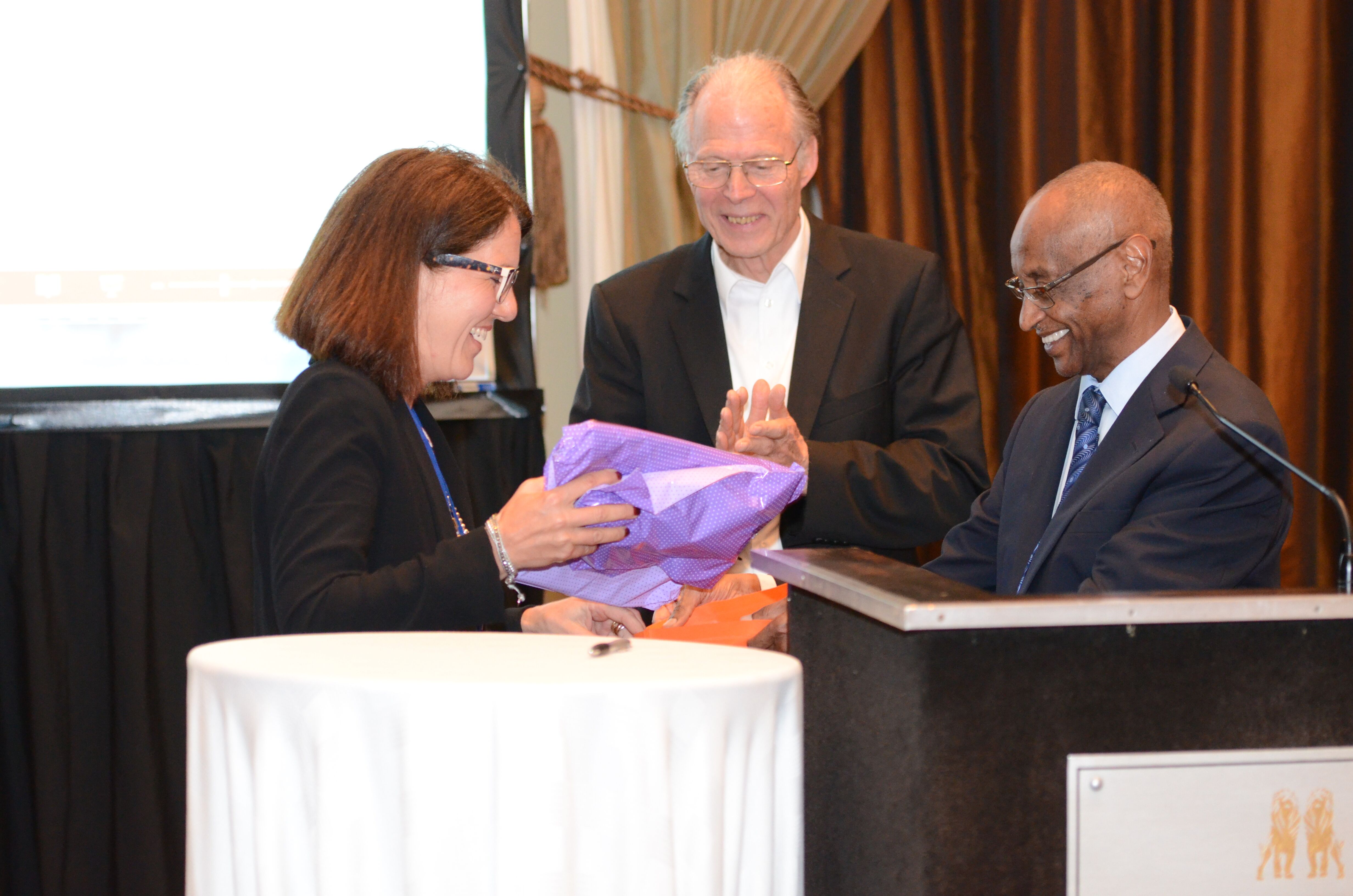


The IAP General Assembly of 2 March marked the end of Mohamed Hassan’s two terms as IAP co-chair.
The event also marked the end of an era during which Hassan, in his previous role as Executive Director of TWAS, initially proposed that IAP be hosted in Trieste, Italy, at the headquarters of TWAS. IAP had been hosted by the Royal Society, UK, since its inception in 1993, but it was time for a change.
The move to Trieste, approved by the IAP General Assembly, took place in 2000. From 2000 to 2011, therefore, when he retired from his role as TWAS Executive Director, administrative responsibility for IAP fell to Hassan. And as retirement approached, he was nominated for the position of co-chair based on his role as president of the African Academy of Sciences.
His second and final term as co-chair of IAP has been marked by working towards integrating three inter-academy networks into the InterAcademy Partnership – a move also approved at the recent General Assembly.
But changes at IAP do not stop there.
One of Hassan’s first moves when the IAP secretariat transferred to Trieste was to appoint Joanna Lacey as the IAP’s senior project assistant. Until the appointment of an IAP Coordinator in 2012, Lacey was directly responsible for all administrative processes. During her 15 years with IAP, therefore, she has become a critical component of the smooth running of the organization and retains a vast ‘institutional memory’ of important decisions, events, correspondence and collaborations.
When Fernando Quevedo, director of the Abdus Salam International Centre for Theoretical Physics (ICTP) was looking for a new senior secretarial assistant, it was Joanna Lacey who was selected for the post. She started at ICTP on 9 March 2016.
“I certainly appreciated Joanna’s efficiency and attention to detail when I was in Trieste overseeing IAP,” says Mohamed Hassan. “Her knowledge of IAP, its history and its practices and procedures has been an integral part of the organization for 15 years. At this time of transition to the InterAcademy Partnership, she will be sorely missed, but we wish her well in her new position.”
If anyone has a greater knowledge of IAP, its history and its working practices within TWAS and the UNESCO system, it is Hassan himself.
 “Although we welcome Krishan Lal of India as the new IAP co-chair,” confirmed Volker ter Meulen, himself IAP co-chair representing industrialised countries, “we did not want to lose Mohamed’s experience completely. Therefore, I asked him if he would accept to become a ‘special advisor’, to be called upon when needed. I am pleased to report that he has agreed.”
“Although we welcome Krishan Lal of India as the new IAP co-chair,” confirmed Volker ter Meulen, himself IAP co-chair representing industrialised countries, “we did not want to lose Mohamed’s experience completely. Therefore, I asked him if he would accept to become a ‘special advisor’, to be called upon when needed. I am pleased to report that he has agreed.”
Although there are significant changes in key personnel at IAP, and its organizational structure is evolving towards a more structured relationship with its partner academy networks, it is expected that the transitions will be smooth and that IAP’s programmes and activities will continue without any disruption over the coming weeks and months.
To help in this process, and while a permanent replacement is sought for Joanna Lacey, Sabina Caris has been seconded to IAP from TWAS and will work closely with the IAP coordinator, Peter McGrath, on a part-time basis for the coming months.